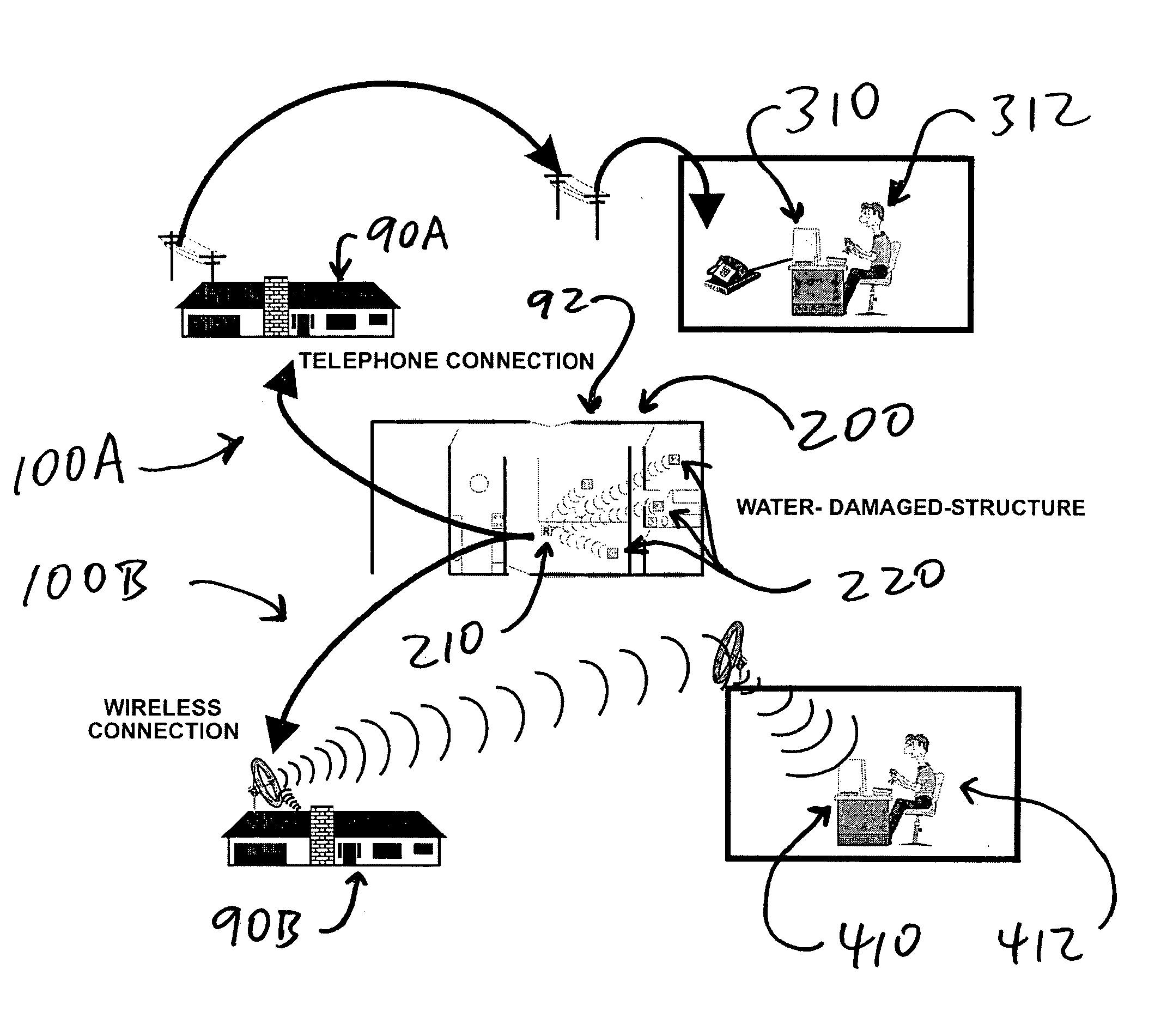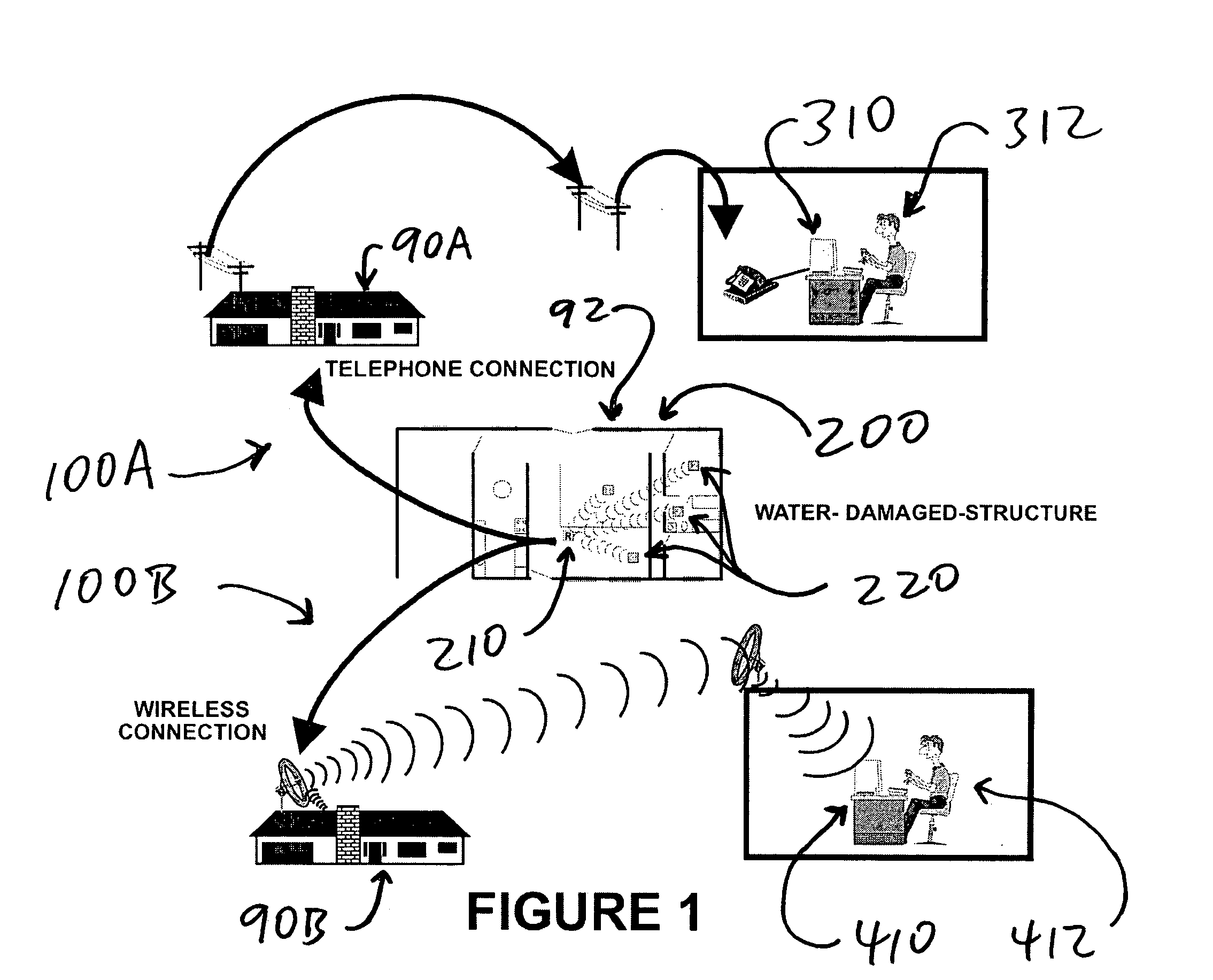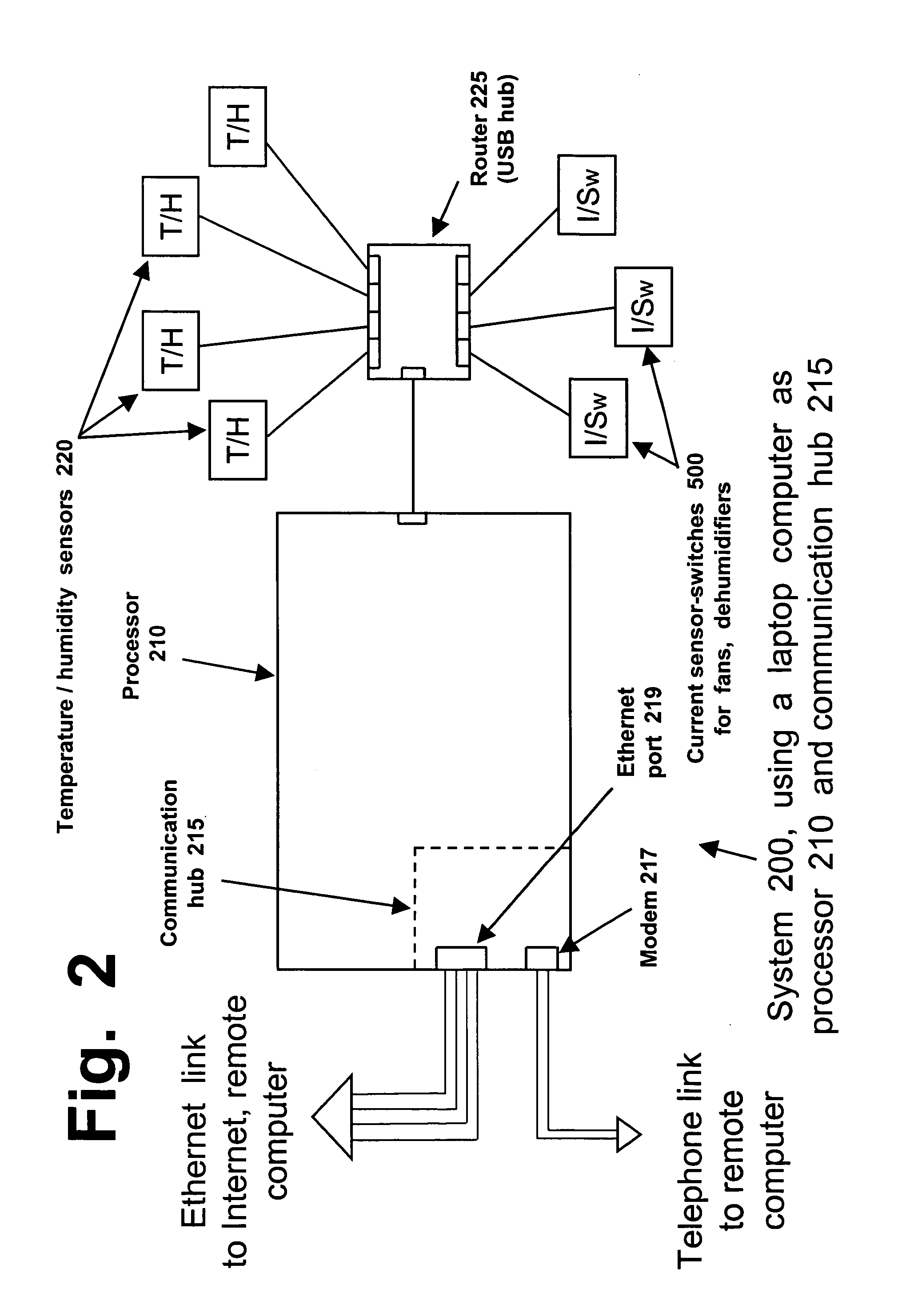Devices and systems for remote and automated monitoring and control of water removal, mold remediation, and similar work
a technology of remote and automated monitoring and control, applied in the direction of instruments, nuclear elements, digital computer details, etc., can solve the problems of many buildings, severe burden on owners, occupants, and serious damage caused
- Summary
- Abstract
- Description
- Claims
- Application Information
AI Technical Summary
Benefits of technology
Problems solved by technology
Method used
Image
Examples
Embodiment Construction
[0024] As briefly summarized above, electronic devices and systems are disclosed that will enable automated and / or remote measuring and monitoring of air temperature and humidity levels in a water-damaged building. A simplified schematic of such a system, represented by callout numbers 100A (for a hard-wired system that uses telephone lines) or 100B (for a wireless system that uses cell-phone or other radiofrequency transmission), is provided in FIG. 1.
[0025]FIG. 1 depicts a home 90 that has been damaged by a flood, burst pipe, a major mold infection, or other water intrusion or damage. Callout number 90A represents home 90 in which a hard-wired telephone connection is being used, while callout number 90B represents home 90 where a wireless system is being used. Floorplan 92 represents a basement or ground floor having several different rooms that require remediation. Sensor and transmitter system 200, shown in more detail in FIG. 2, has been installed at the job site. The system 2...
PUM
 Login to View More
Login to View More Abstract
Description
Claims
Application Information
 Login to View More
Login to View More - R&D
- Intellectual Property
- Life Sciences
- Materials
- Tech Scout
- Unparalleled Data Quality
- Higher Quality Content
- 60% Fewer Hallucinations
Browse by: Latest US Patents, China's latest patents, Technical Efficacy Thesaurus, Application Domain, Technology Topic, Popular Technical Reports.
© 2025 PatSnap. All rights reserved.Legal|Privacy policy|Modern Slavery Act Transparency Statement|Sitemap|About US| Contact US: help@patsnap.com



